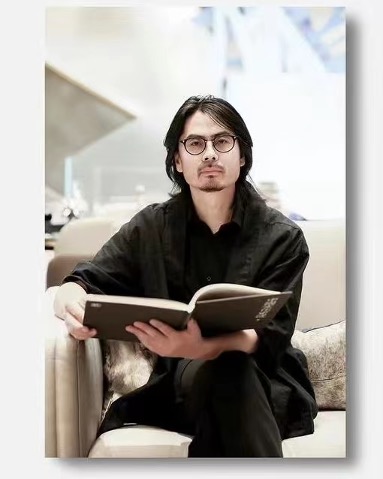
When artist Zhang Xiaodong talked about his exhibition works, he used the expression of ‘beautiful mistakes’.
While he brought his dragon scale binding works to Tibet for exhibition, due to the difference of weather and humidity, the paper curled up. It could be seen as a mistake for not considering the environmental objective facts, however, it resulted in a stunning outcome. All the pages became extremely vivid. During the process of curling up, a new world was invented.
That’s the reason of ‘thousand pages’ and ‘infinity’.
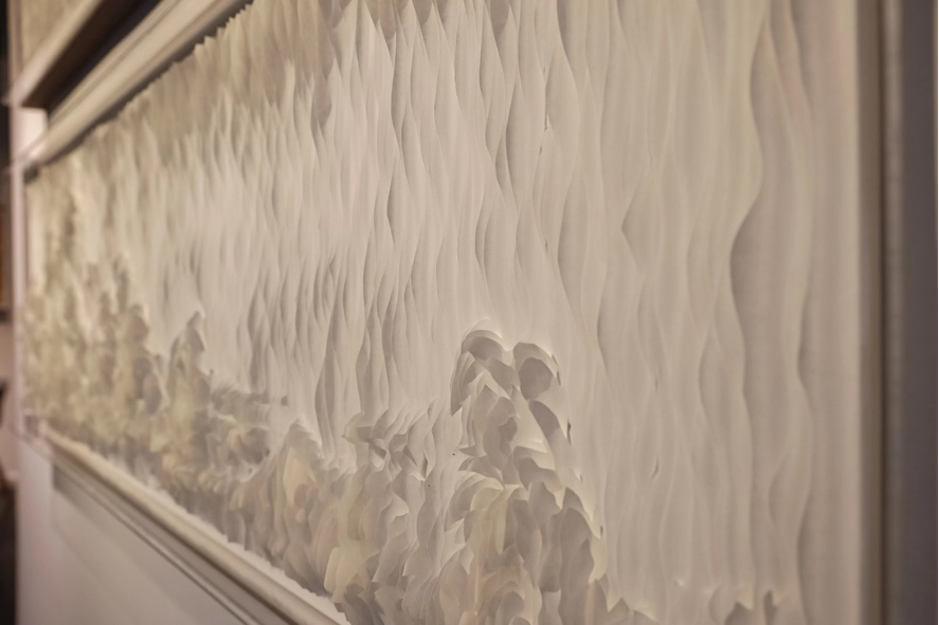
Karuna is one of the biggest concepts in Buddhism, translated as compassion. The word itself was built by two meanings – understanding the Buddhism concept and helping the world with it. Buddhism Sutra is always defined as Mahayana Buddhism and Hinayana Buddhism. The difference between them is that the first one focuses on helping people and second one, helps ourselves. Heart Sutra – a famous sutra from Mahayana concepts – quotes ‘Looked down and beheld that five Skandhas were all empty, and is saved from all suffering and difficulty.’ Five Skandhas is the Buddhist conclusion and explanation of how everything was invented and decayed. Heart Sutra explained it with ‘’ Form does not differ from emptiness; emptiness does not differ from form. Form itself is emptiness; emptiness itself is form.’ It was aimed to let stylite understand that nothing is real in the world, it is all about emptiness. Emptiness doesn’t mean it is empty, but it’s a mental stage of letting everything go.
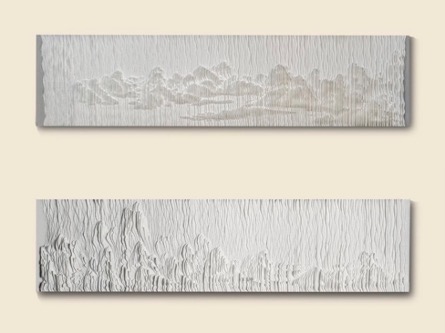
By understanding the definition of emptiness in Buddhism concept, it would be much easier for audiences to understand Zhang Xiaodong’s work Heavenly Mountains and Non-Sand. This is the "emptiness" that emerges after the figurative form is stripped away. After the shape and colour of the landscape are removed, only the outline and texture are left. The rice paper made with special techniques brings out endless details. From a distance, it leaves out the blank. However, when audiences look up closely, it gives them a whole world. Every detail and texture on the paper is unique.
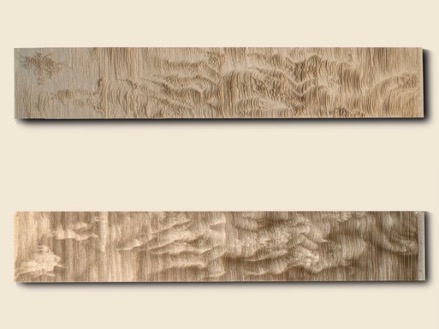
The word Vajra first appeared in the classic book ‘Rigveda’. It is recorded that Vajra was the weapon of Indra. During the war between Indra and Asura, it fell down from heaven and became Vajra. Asura was courteously treated as all the gods in heaven at the beginning. However, other gods have already understood the origin of the universe, they have lost interests on everything. Asura is different, he is always busy. Everyday for him is a new adventure.
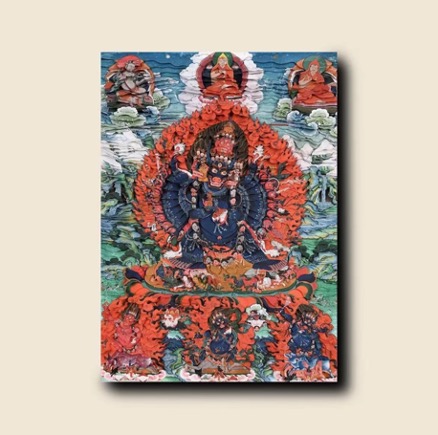
He is always angry and always ready to fight. No one has more power of life than he has.
I found the same spirit from Zhang Xiaodong’s work ‘Thousand pages of Vajras’. In this work Vajras’s eyes were widely opened, fire is around him. He stood at lotus. He is a rebellious child, he is also the king who redefines the world.
Isn’t it the same with Zhang Xiaodong’s creative concept? Dragon Scale Binding, this traditional technique has been ‘rebelliously’ recreated by him, and brought to the audience in a contemporary way.
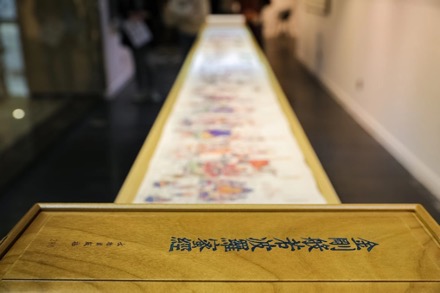
Back to the topic.
Everything with form is unreal. This quote is from Diamond Sutra. Coincidentally, Diamond Sutra is also one of Zhang Xiaodong’s Dragon Scale Binding works.
In Hermann Hesse's book Siddhartha, he raised another voice. In the process of searching for the Dharma, one may become more and more profane. He will keep questioning himself and his obsessiveness will become more and more serious. Therefore, Hesse said that in order to find the real inner peace, we must live in the dirty world to explore.
The Buddhist thought in "A Brief History of Humankind" by Yuval Noah Harari is not to ask people to avoid sorrow and pain, but to clearly feel the reality around them and experience the essence of things. Although people will suffer, they will not be troubled by it. When there is happiness, do not indulge in happiness. All of these are rich experiences in life.
Eternity brings sadness. It makes a man become a child, an immortal become a human. Zhang Xiaodong's works have opened the door of divinity for us. We have had a glimpse of philosophy and history. What's more important is that during the process of thinking, we witness the eternity hidden in the fleeting moment.
The exhibition ’Leaves of Infinity’ by Zhang Xiaodong will be extended until May 8th
To know more about the exhibition click in the link HERE
Art+ Shanghai Gallery team wishes you to stay safe and to remain positive during this special time. We are all together.





